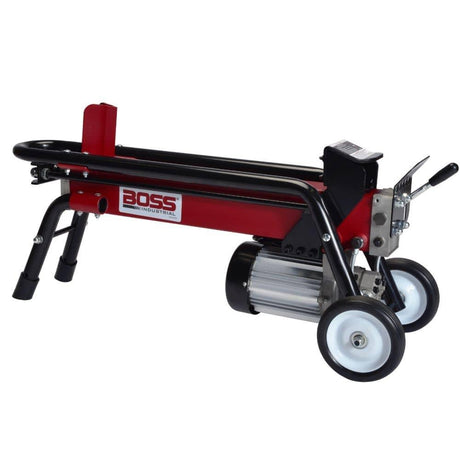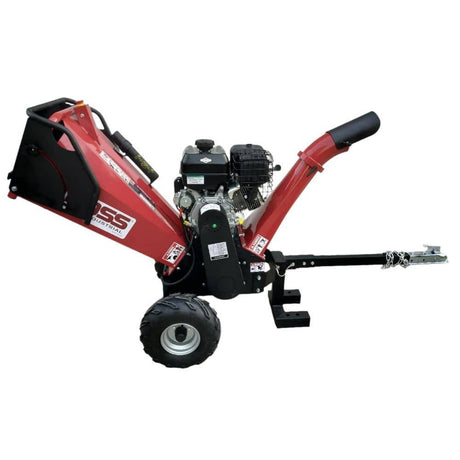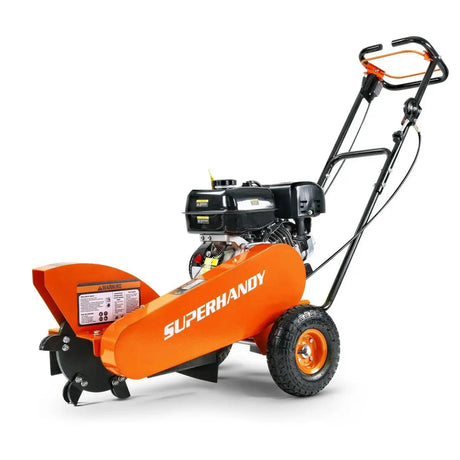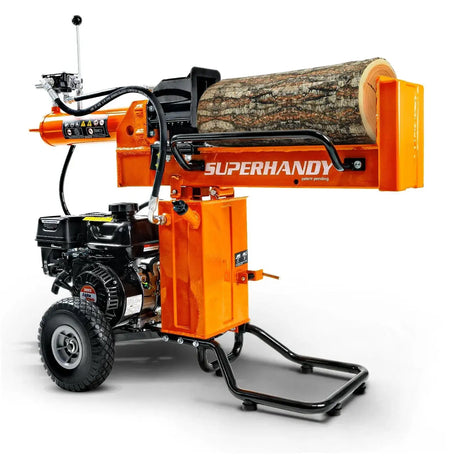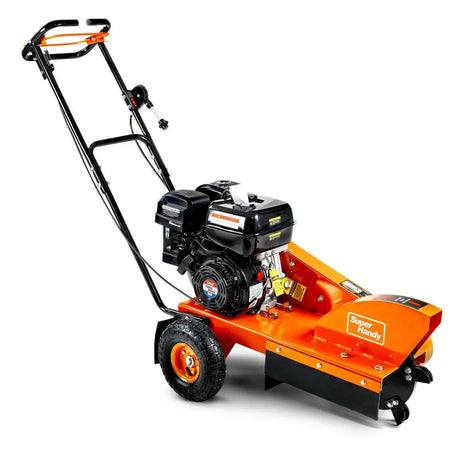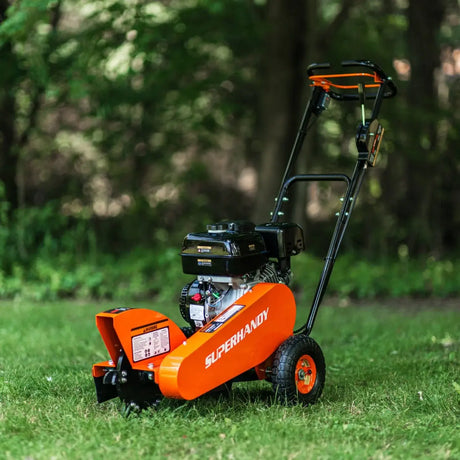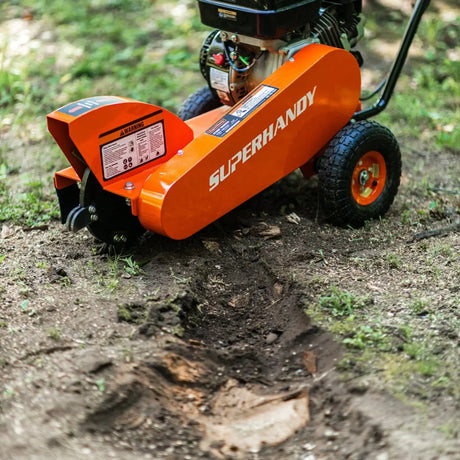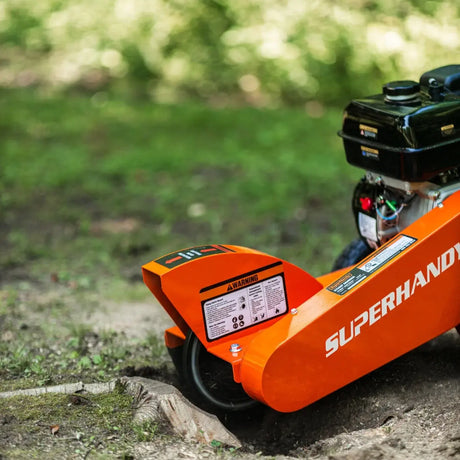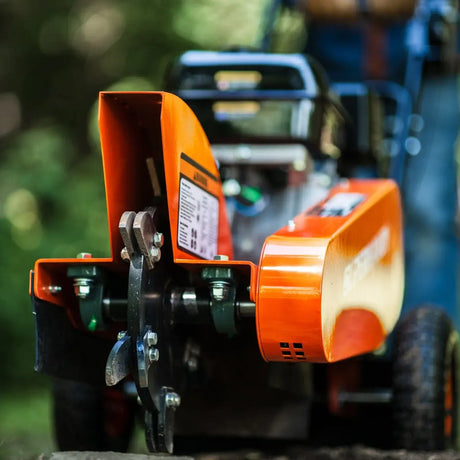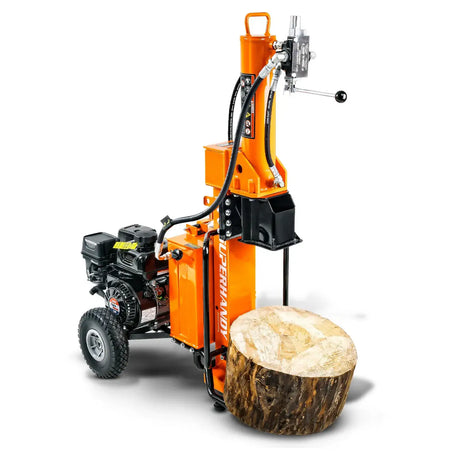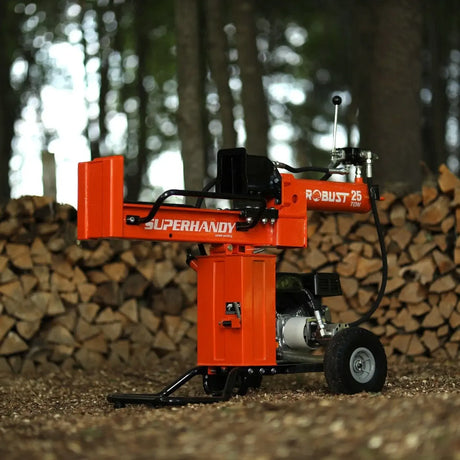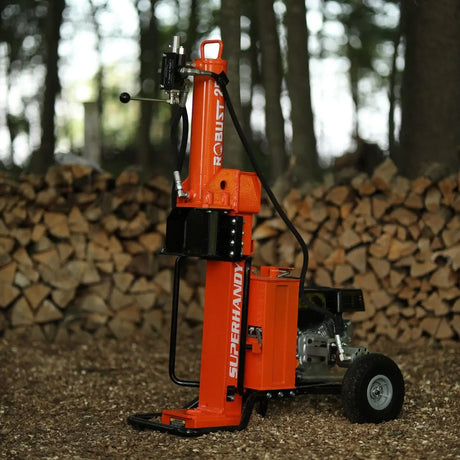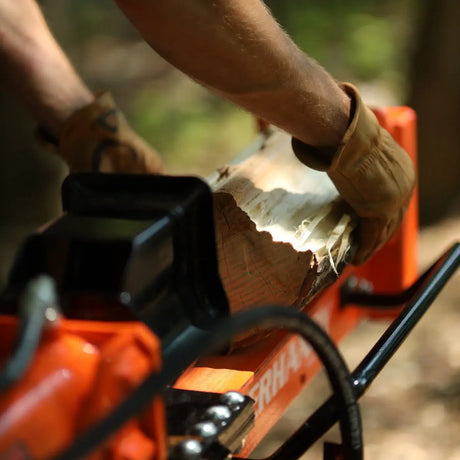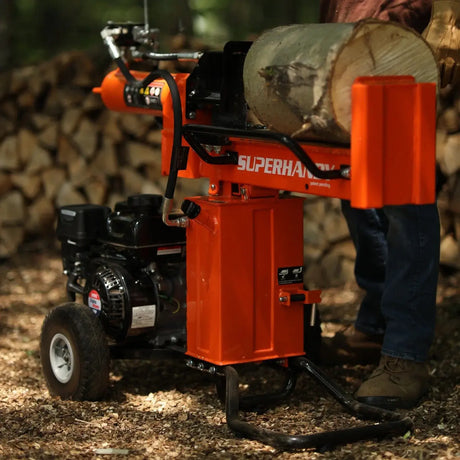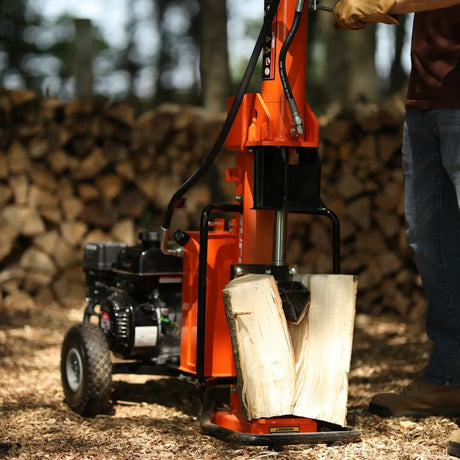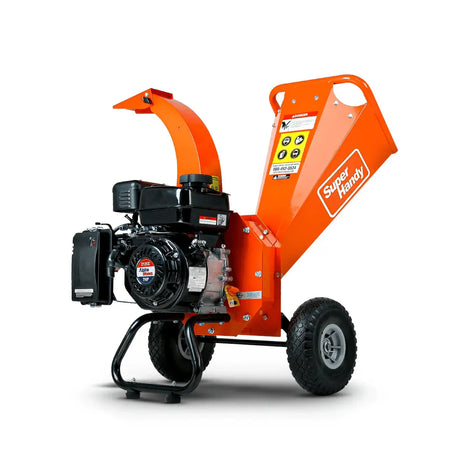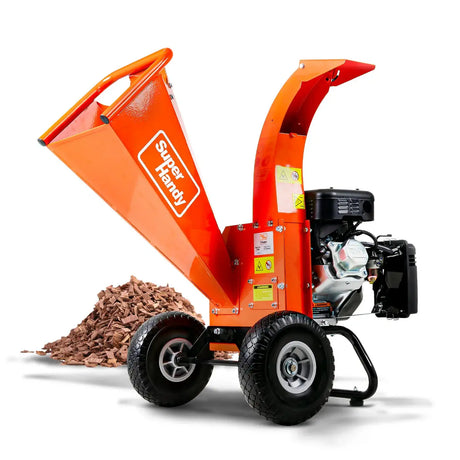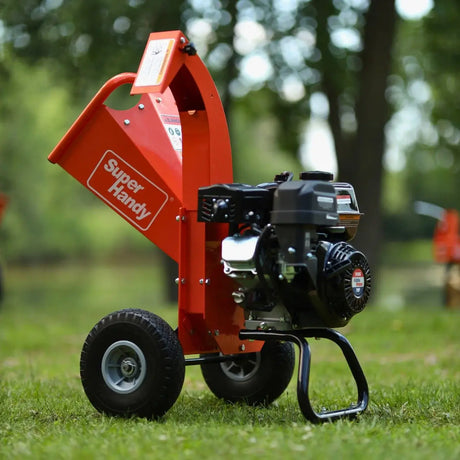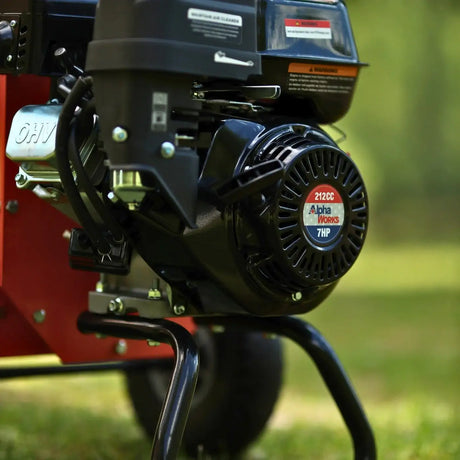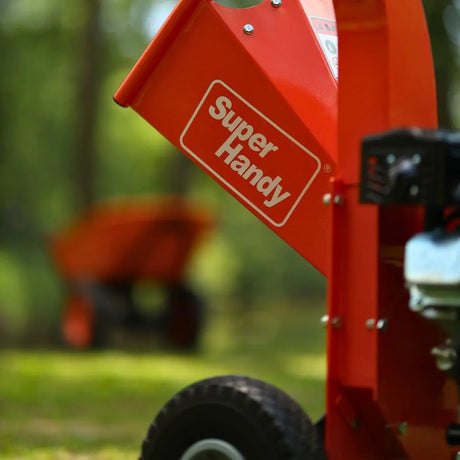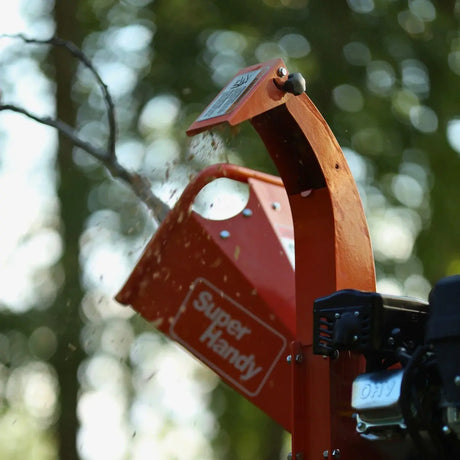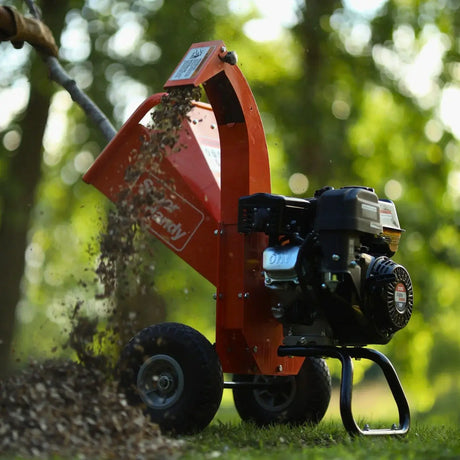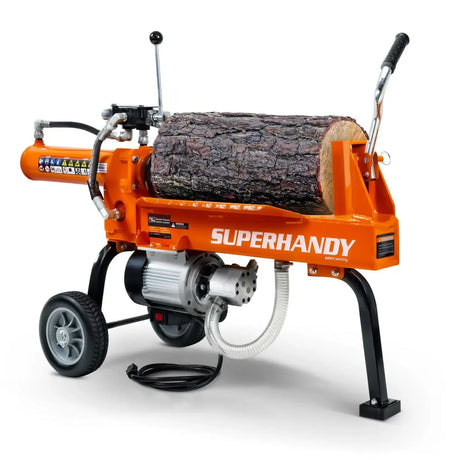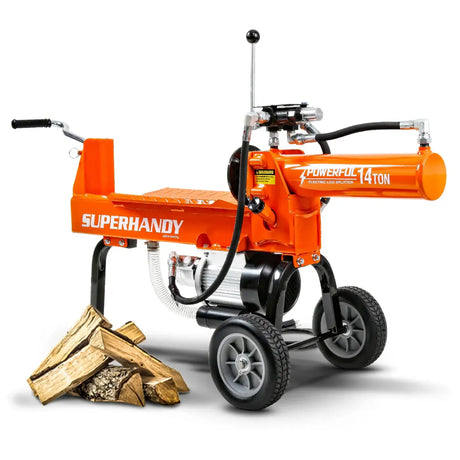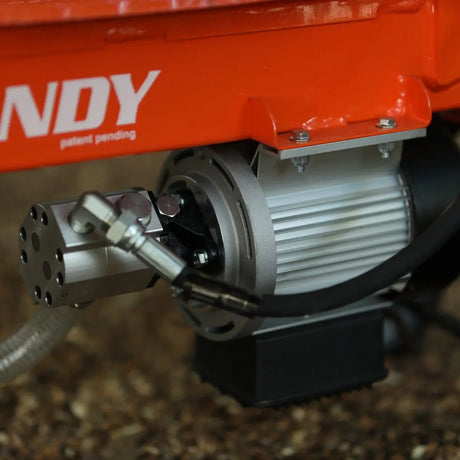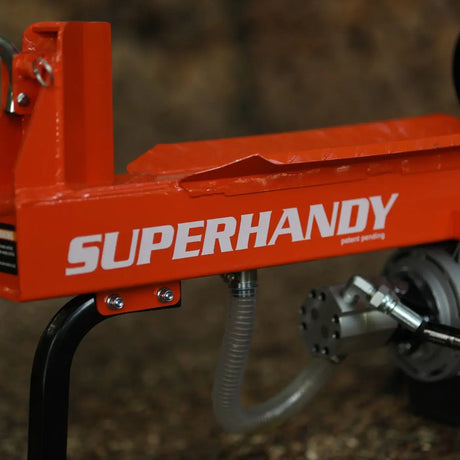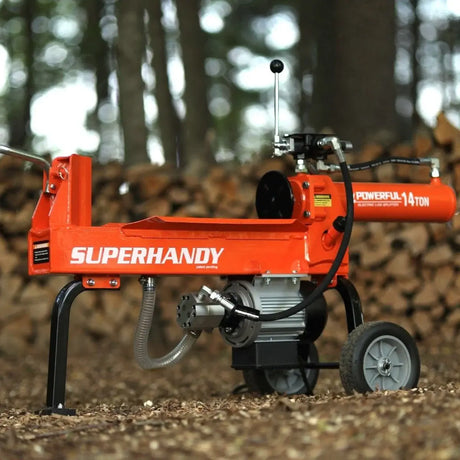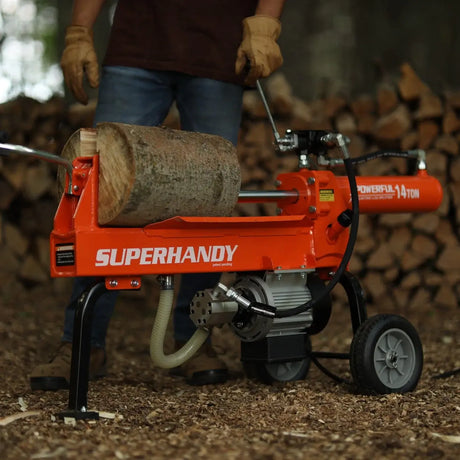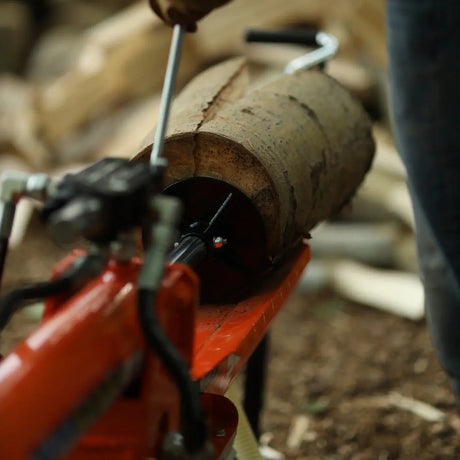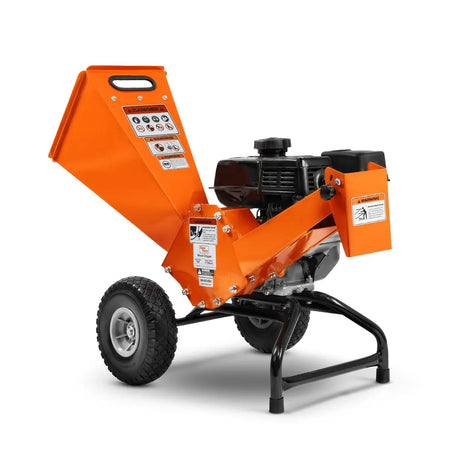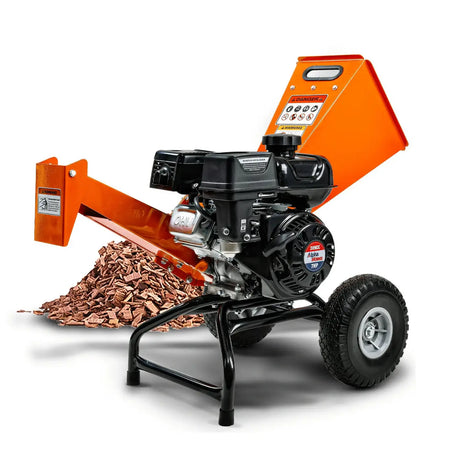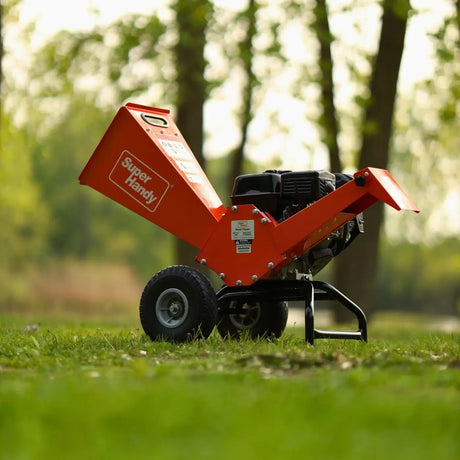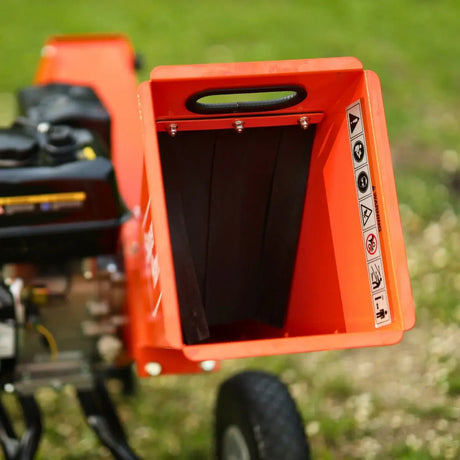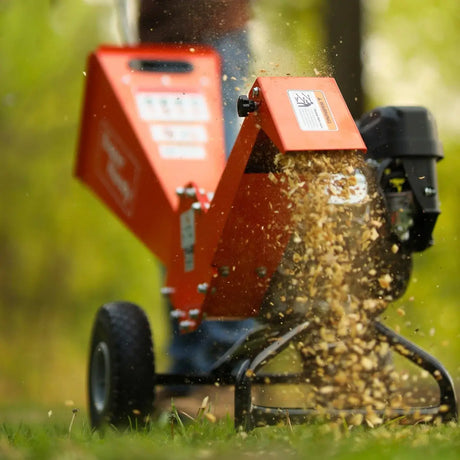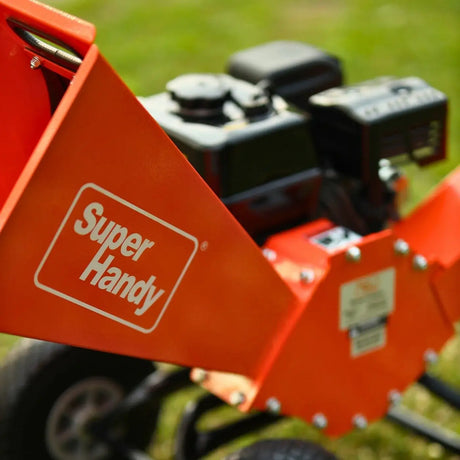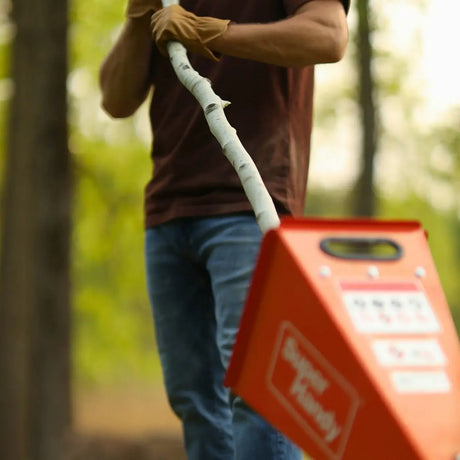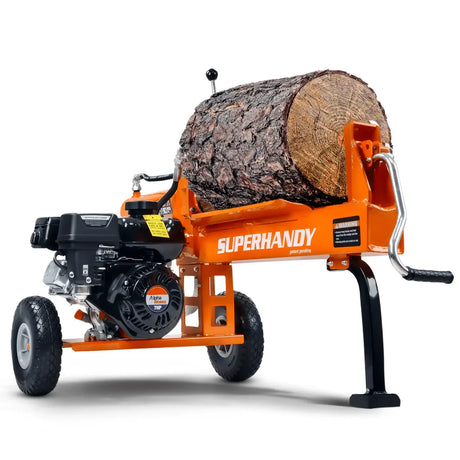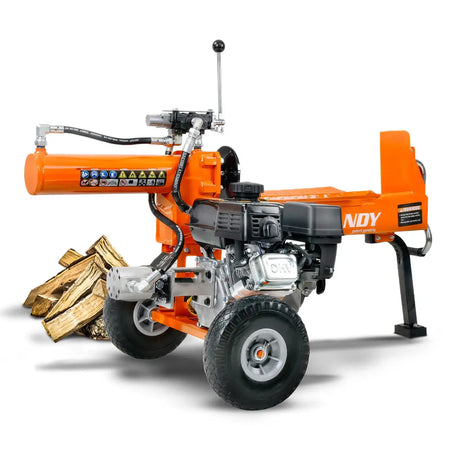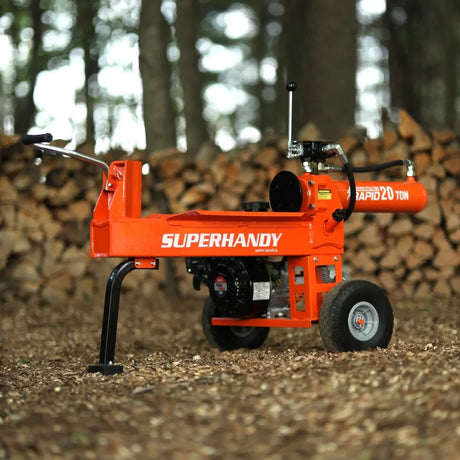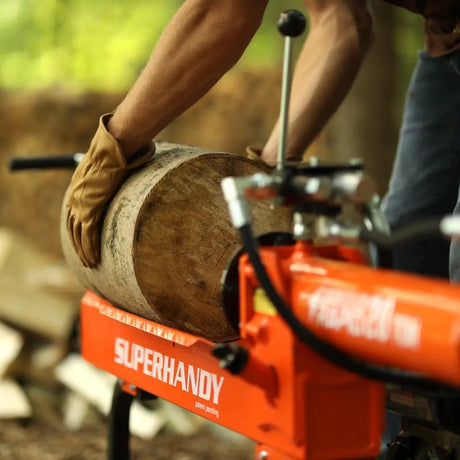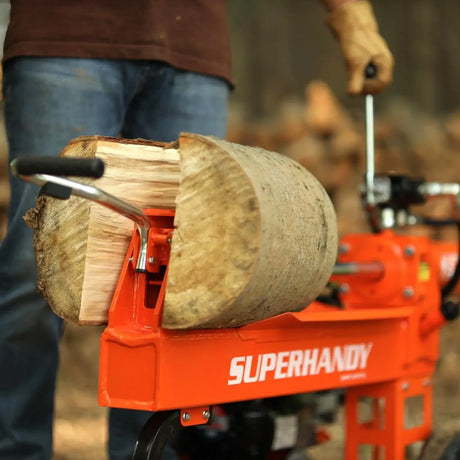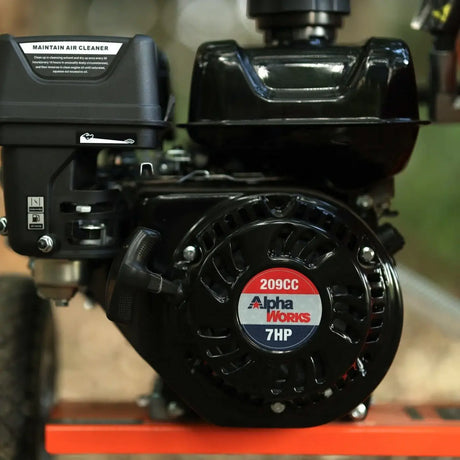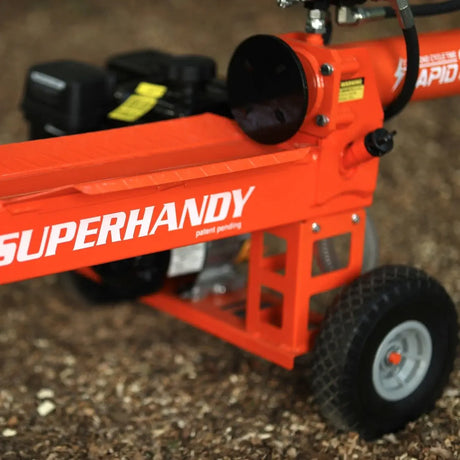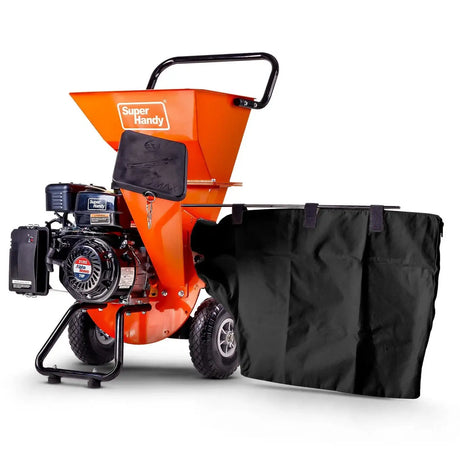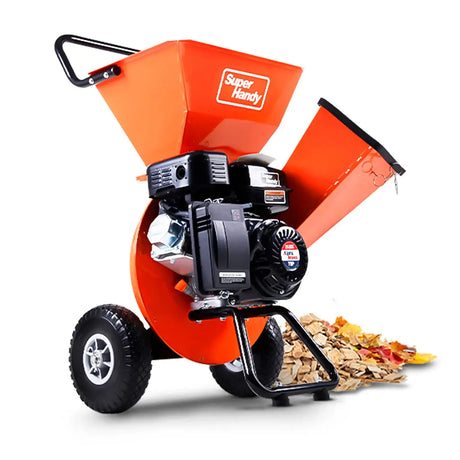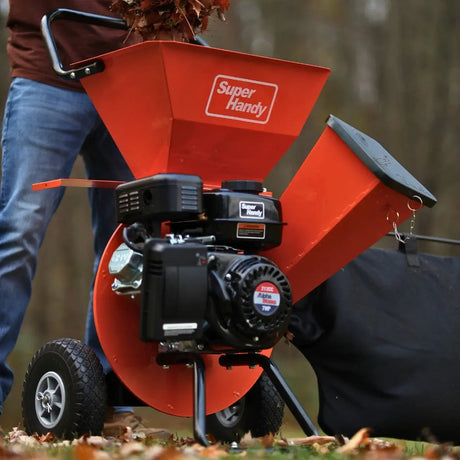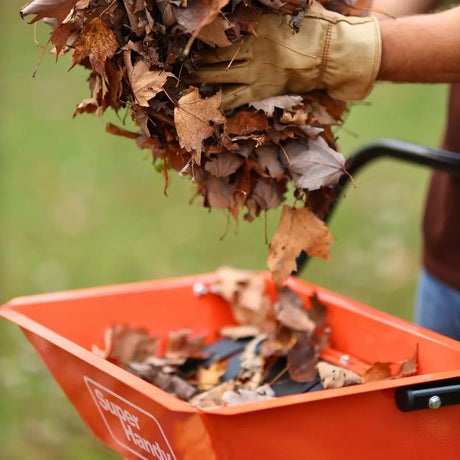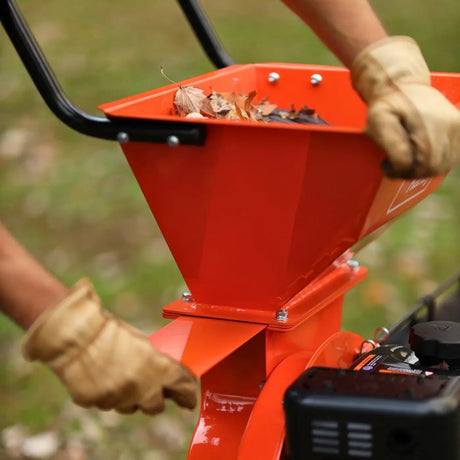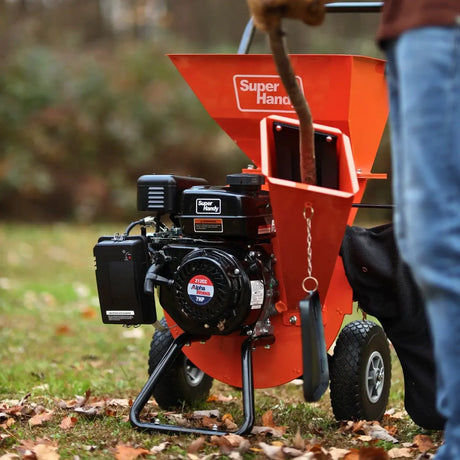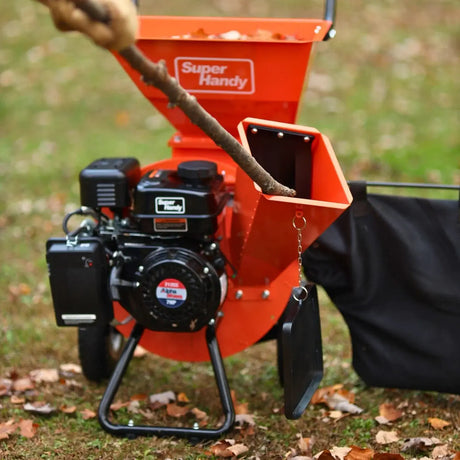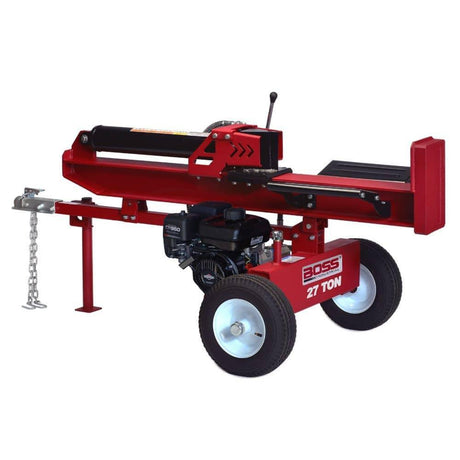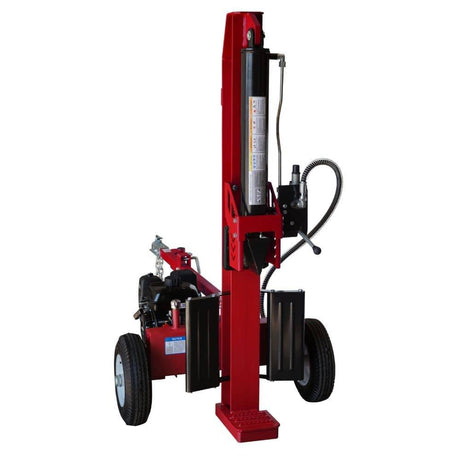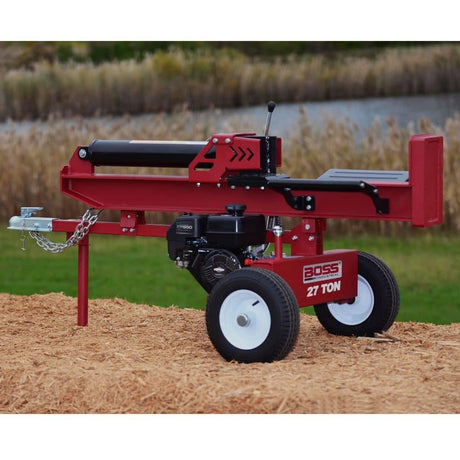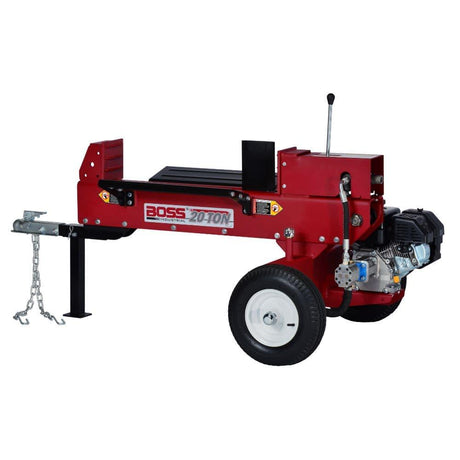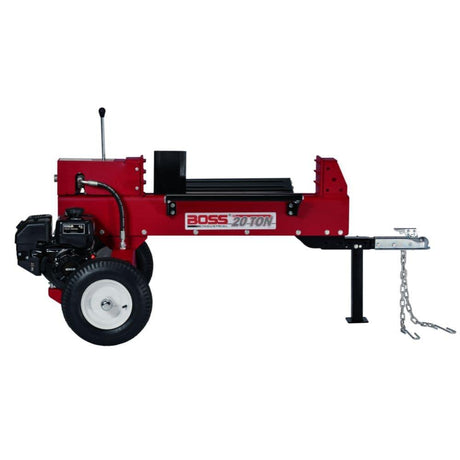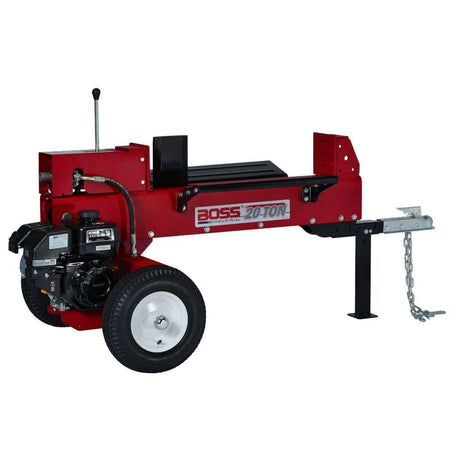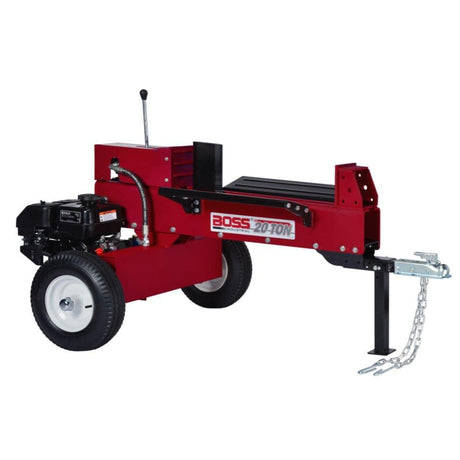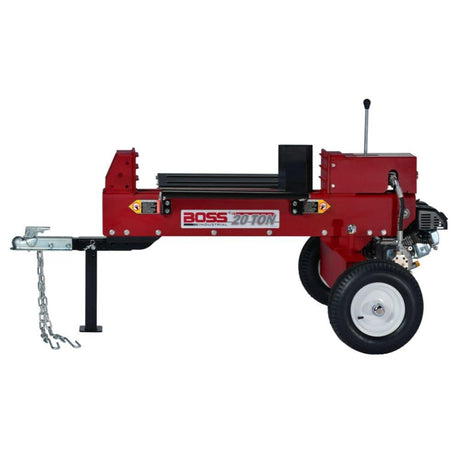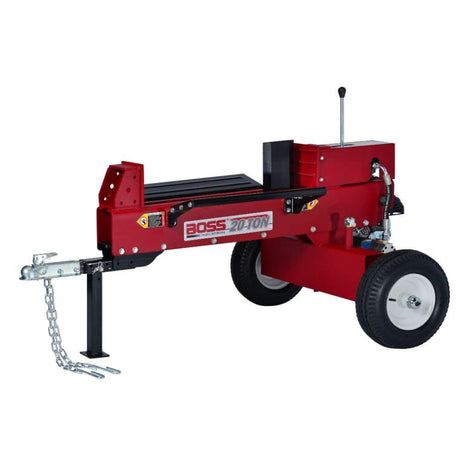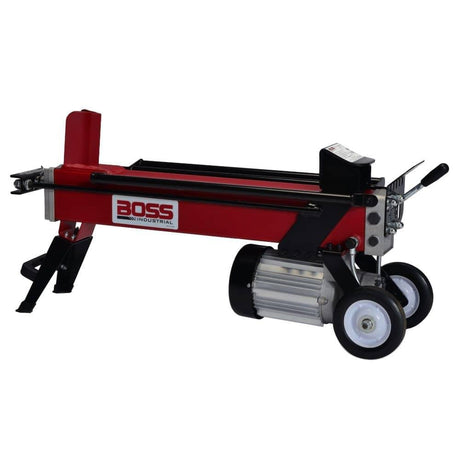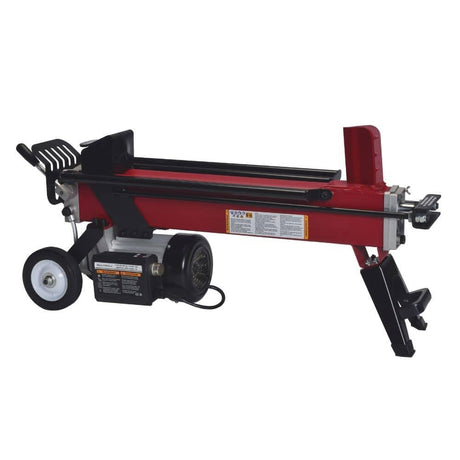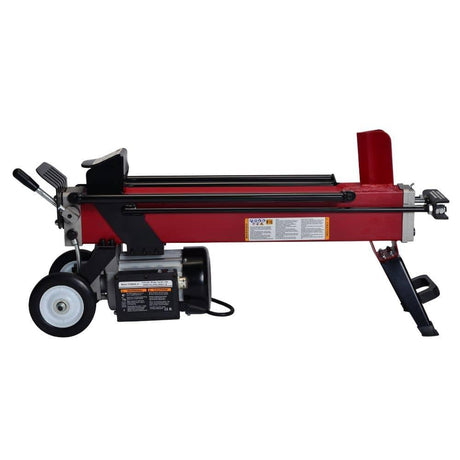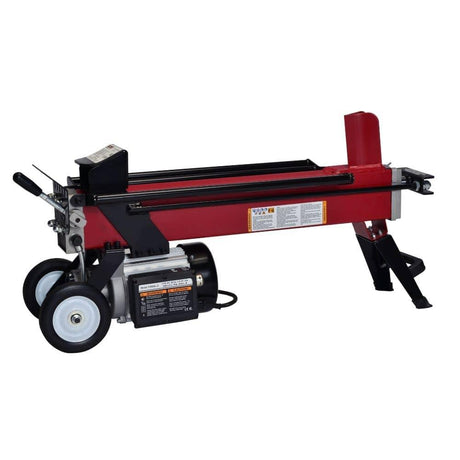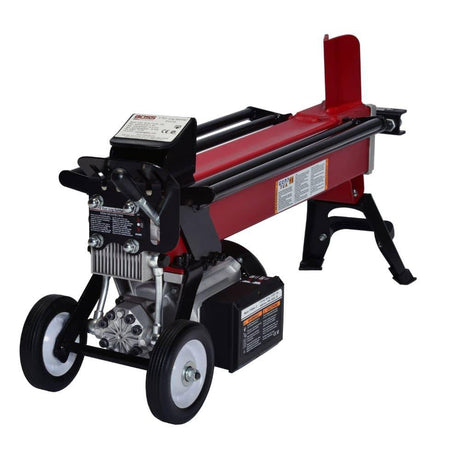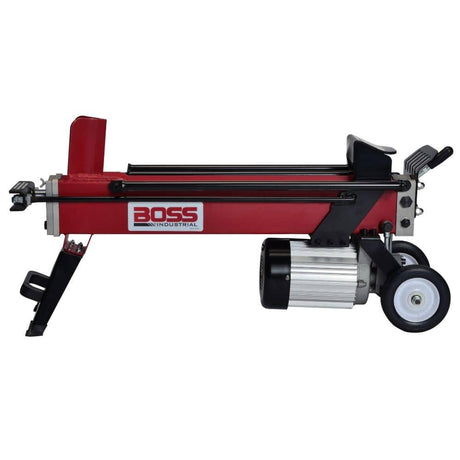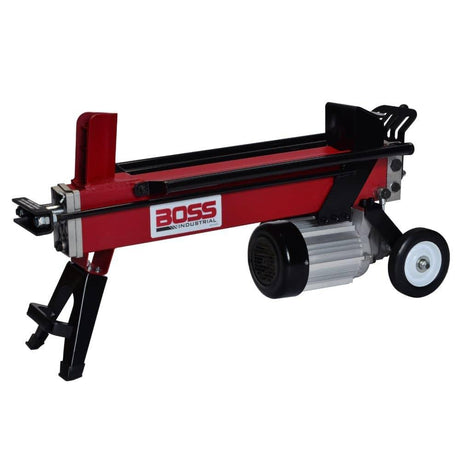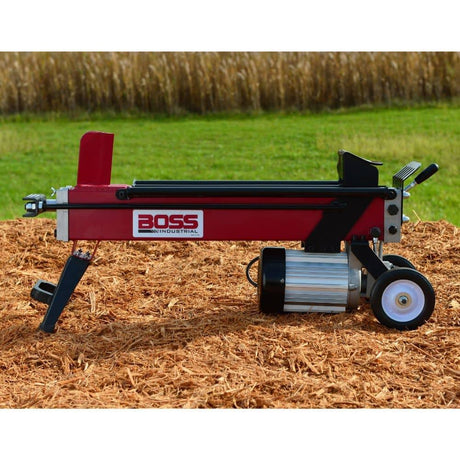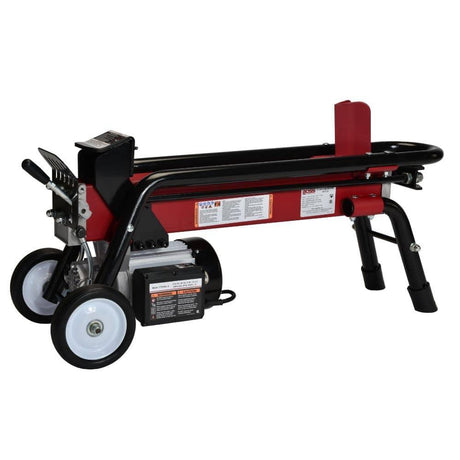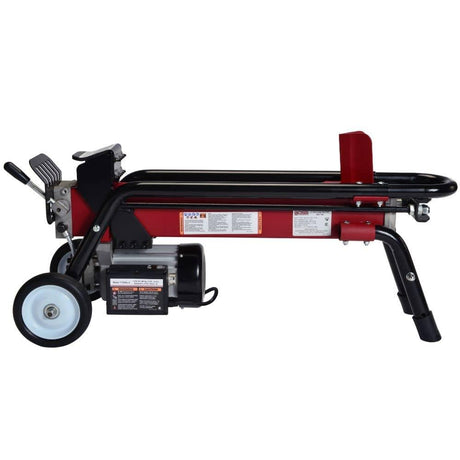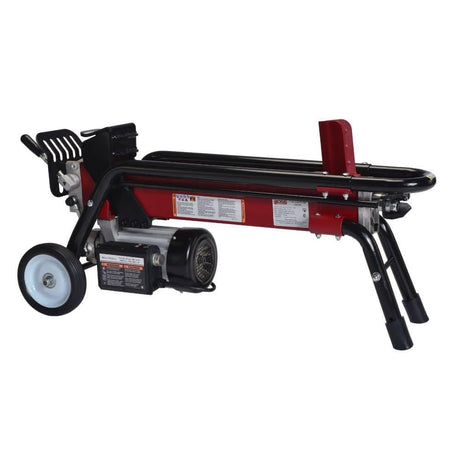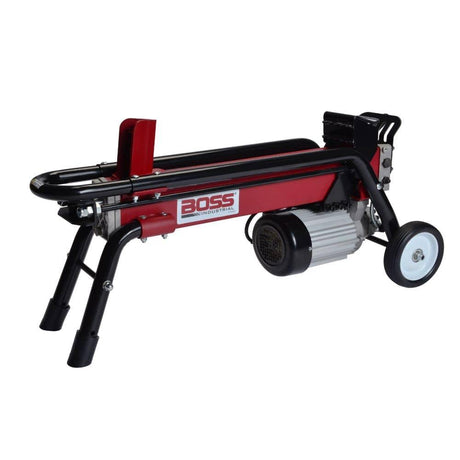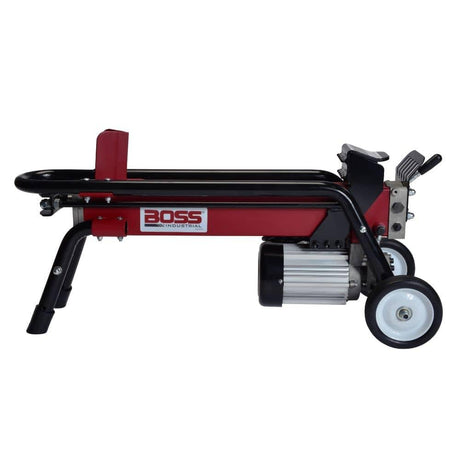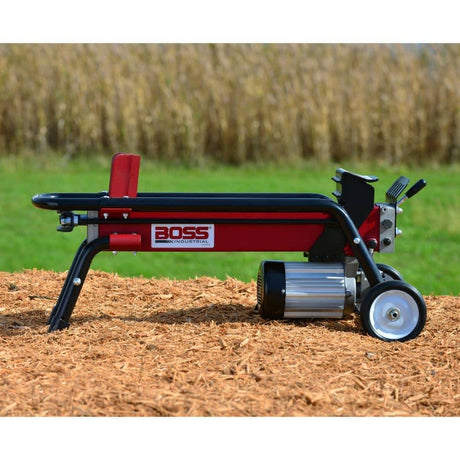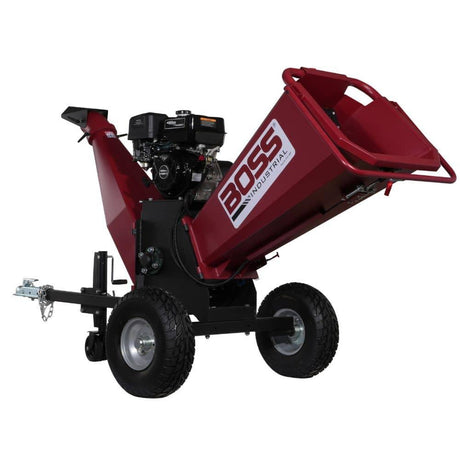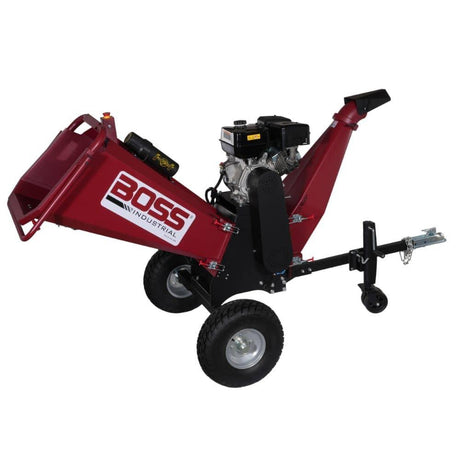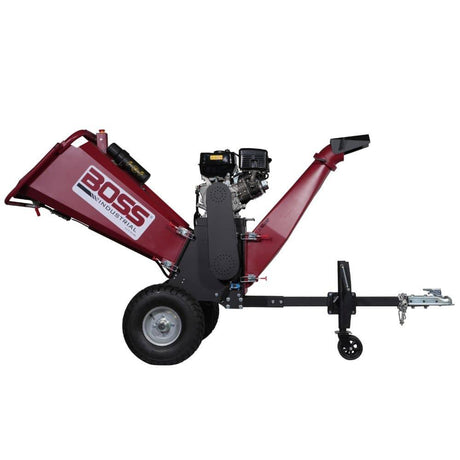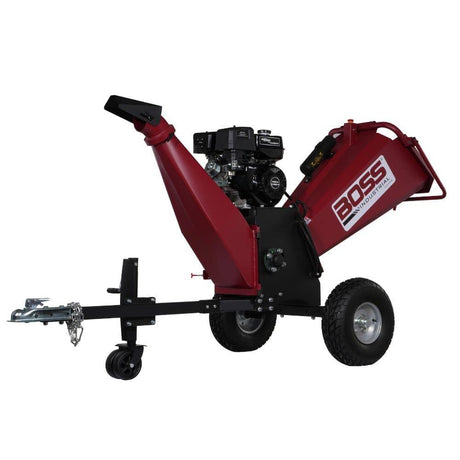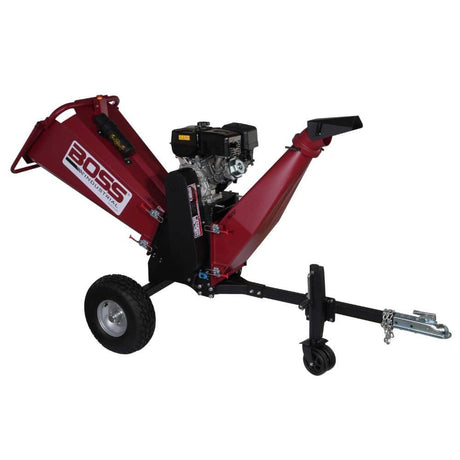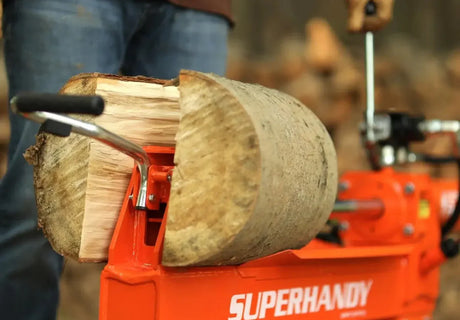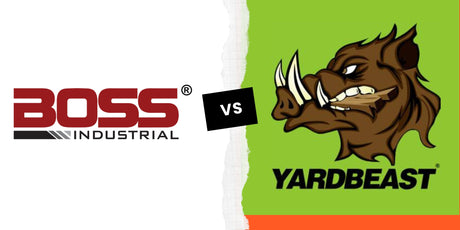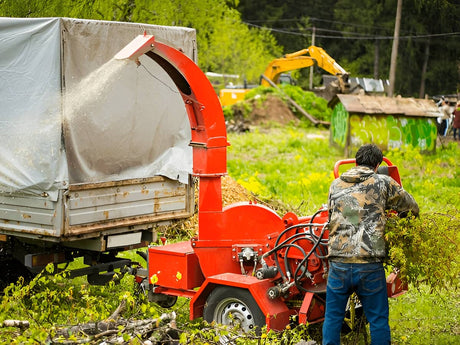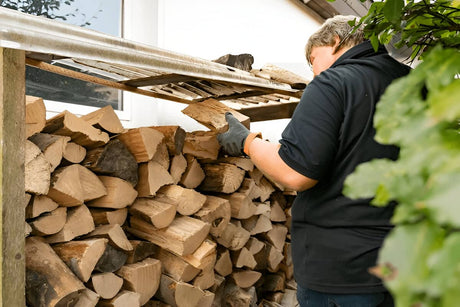If you're looking to buy a wood chipper-or simply want to get the most out of the one you already own-understanding throughput is essential. In simple terms, it's how much material your chipper can handle per hour. That includes weight (lbs/hr) and volume (cubic feet/hr).
These numbers vary a lot depending on three things:
- The size of the machine
- Its horsepower
- The size of branches it's rated for
Let's break it down so you can make a smart choice.
Key Takeaways
- Higher horsepower generally means more throughput-but it also means a bigger machine, more fuel, and a higher price tag.
- Residential electric models are great for twigs and leaves, but you'll need gas or diesel if you're dealing with thick limbs or a full day's work.
- Throughput numbers help you estimate how long a job will take-and whether the chipper can keep up with your workload.
- Don't forget: operator speed and feeding technique also impact real-world results.
Wood Chipper Throughput by Size, Horsepower, and Capacity
Here's a detailed comparison of different chipper types and what they can handle per hour, both in weight and volume.
| Model Type | Horsepower (HP) | Capacity (Max Branch Diameter) | Throughput (lbs/hr) | Volume (cubic feet/hr) | Notes |
|---|---|---|---|---|---|
| Residential Electric | 1.5–3 HP | 1–1.5 inches | ~150–300 lbs/hr | ~6–12 cu ft/hr | Suitable for light yard work; handles small branches and leaves. |
| Residential Gas | 5–10 HP | 2–3 inches | ~500–800 lbs/hr | ~20–32 cu ft/hr | Ideal for moderate yard cleanup; can handle larger branches. |
| Professional Gas | 15–25 HP | 4–6 inches | ~1,000–2,000 lbs/hr | ~40–80 cu ft/hr | Designed for heavy-duty use; efficient for large properties or farms. |
| Commercial Diesel | 30–60+ HP | 8–12 inches | ~3,000–6,000 lbs/hr | ~120–240 cu ft/hr | High-capacity machines used by municipalities and tree care companies. |
| Industrial Diesel | 100+ HP | Whole trees (>12 inches) | ~10,000+ lbs/hr | ~400+ cu ft/hr | Used for forestry applications and large-scale operations. |
What This Table Shows
The table is organized by model type, starting with small electric chippers and going all the way up to industrial diesel units. For each category, we show:
- Horsepower range - gives you a sense of engine strength.
- Maximum branch diameter - the largest limb it can take.
- Estimated throughput in weight and volume - how much material it can process in an hour under average conditions.
- Notes - real-life insights on what that chipper is best suited for.
This gives you a quick snapshot of what each chipper class can realistically handle-whether you're clearing light brush in your backyard or managing storm cleanup across multiple acres.
How to Use This Data in Real Life
Let's say you're deciding between a residential gas chipper and a professional-grade model. Here's how to use the table:
1. Match the Tool to the Task
- If you're cleaning up after pruning a few small trees, a residential electric chipper is fine. You'll process maybe 300 lbs/hr and be done in an afternoon.
- But if you're clearing a half-acre lot, you'll want something stronger-maybe a 15 HP gas chipper that handles 4-6" branches and puts out 1,000-2,000 lbs/hr.
2. Estimate Time and Labor
Need to chip 4,000 lbs of branches after a big storm?
- With a residential gas chipper (~600 lbs/hr), you're looking at 6-7 hours of steady work.
- A professional chipper could cut that down to 2-3 hours or less.
3. Avoid the Wrong Fit
- One of the most common mistakes I see: folks using a low-HP chipper to process thick limbs. Not only does it slow you down-it can clog, overheat, or even break.
- On the flip side, buying a 25+ HP chipper for light garden use is overkill. You're paying for performance you don't need.
Final Thoughts
Throughput matters. Whether you're managing your property or working professionally, choosing a chipper that matches your needs will save you hours-and a whole lot of frustration.
- ✅ Electric = quiet and compact, best for small jobs
- ✅ Residential gas = versatile, great for homeowners with trees
- ✅ Pro gas/diesel = serious power for big tasks
- ✅ Industrial = only if you're clearing whole trees or running a crew
If you're shopping for a wood chipper, start with how much material you expect to process per session-then use this data to find the right match.
👉 Browse our top-rated gas wood chippers here - built for real work, tested for performance.


